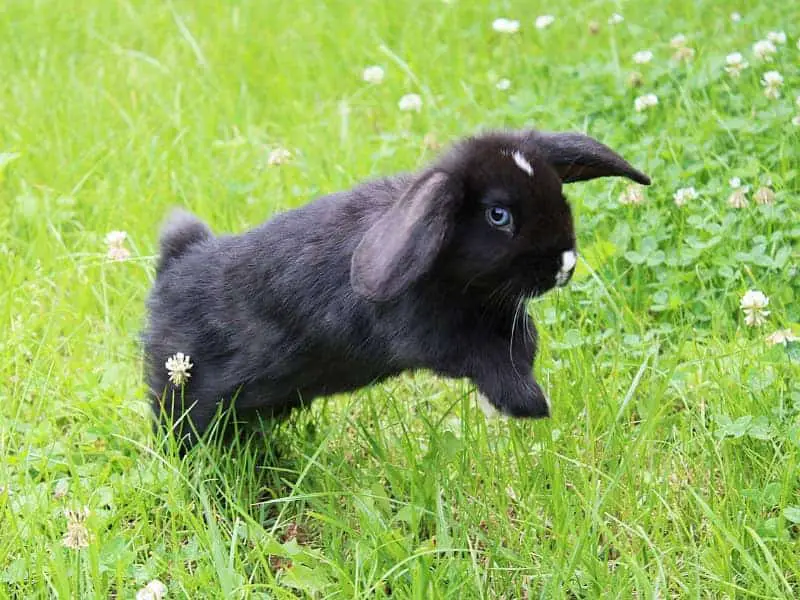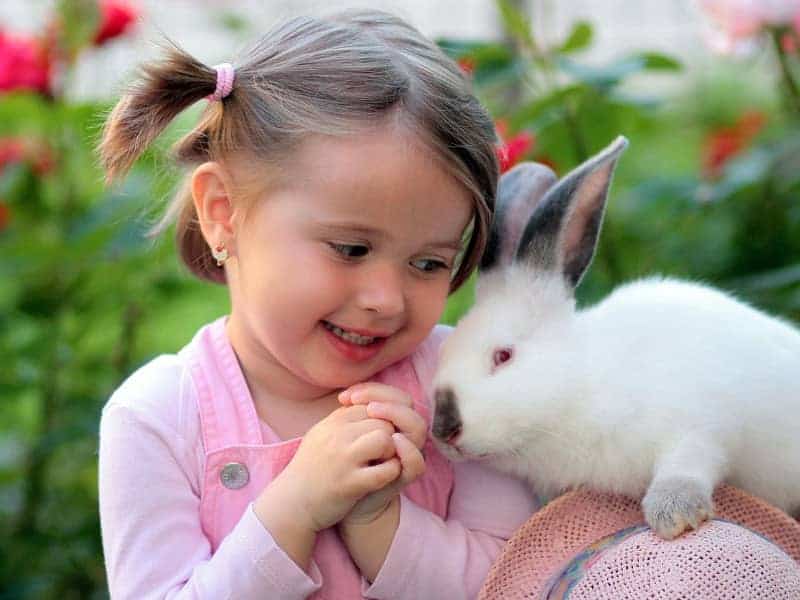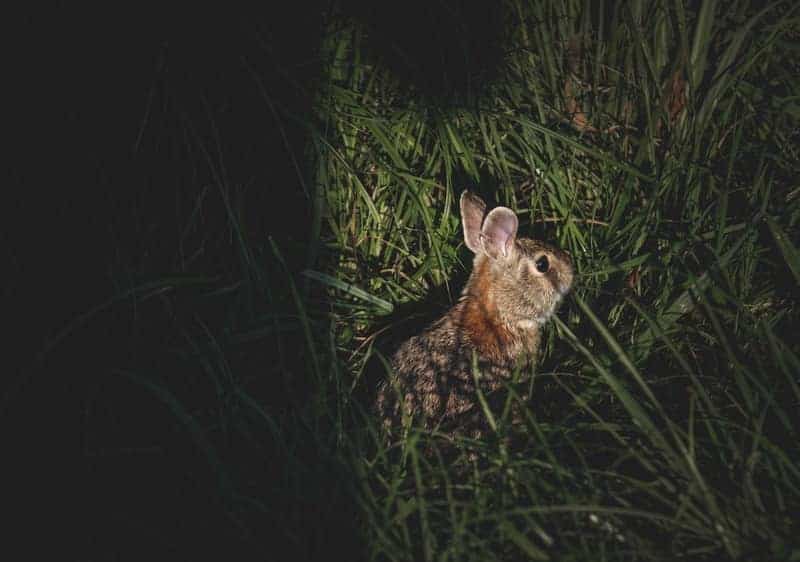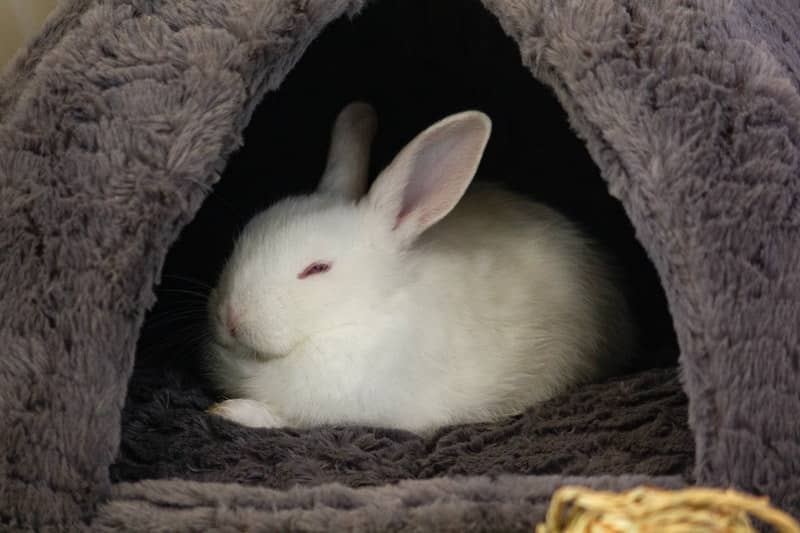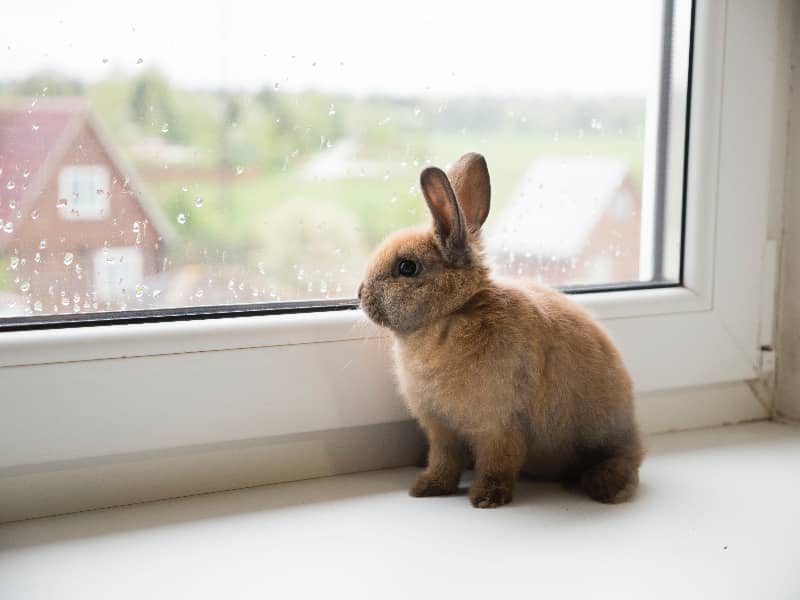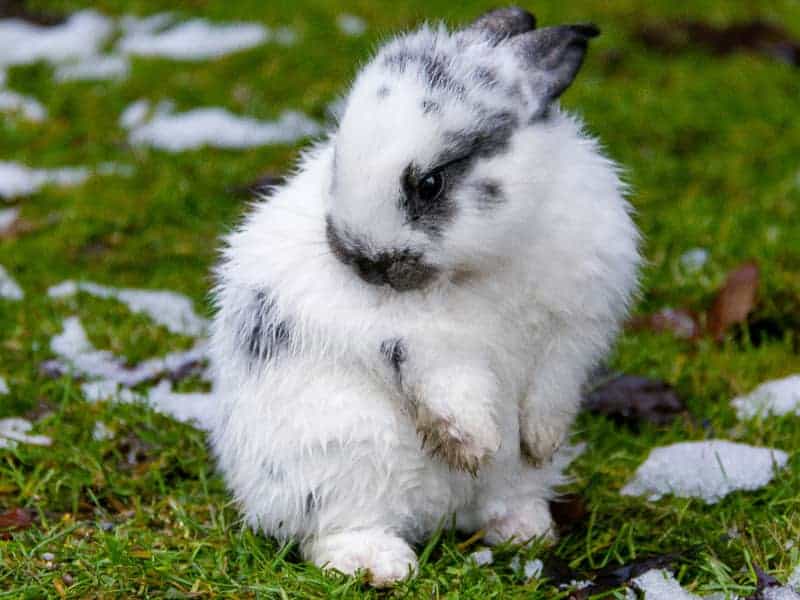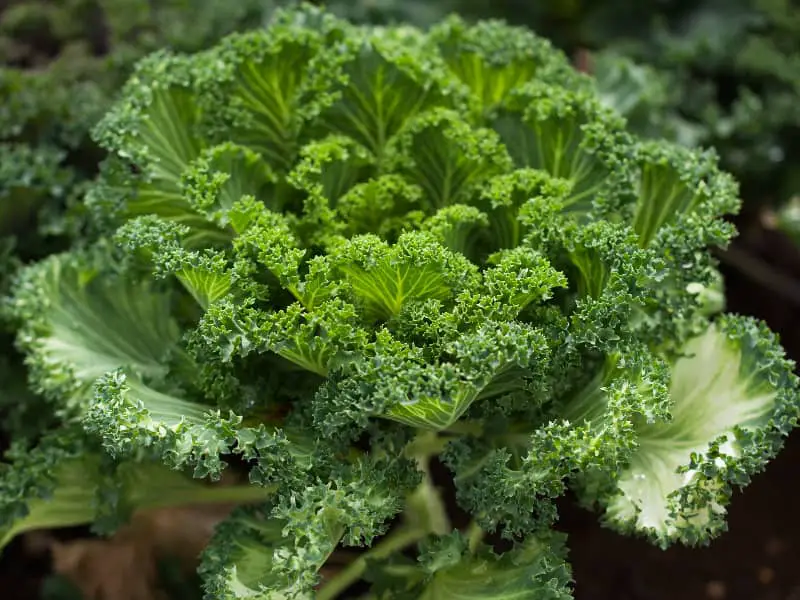
Are rabbits allowed to eat kale?
If you take a peek in your garden or look at the vegetable display when you're shopping, you're sure to see kale from time to time - a nutrient-rich, dark green leafy vegetable that's especially popular in the cooler months. But, are rabbits allowed to eat kale? You can find all the answers in our article.
What is kale actually?
Kale, also known as "winter kale", is a vegetable that belongs to the cruciferous family. It has wavy, curly leaves and can come in a variety of colors from green to purple. It is a staple in many cultures, especially in the colder months, as it survives frost well
Kale and its nutrients
Kale is known for its high nutritional content. It is rich in vitamins such as vitamin C, vitamin K and vitamin A. It also provides important minerals like calcium, magnesium and iron. But what does this mean for your rabbit?
High nutrient content can be beneficial, but it is also important to know in what amounts these nutrients are safe for rabbits. Excess of certain vitamins and minerals can be harmful to rabbits, so it is important to find the right balance.
Here is another table on the nutritional values per 100 g of kale:
| Nutrient | Quantity |
| Calories | 49 kcal |
| Total fat | 0,9 g |
| Saturated fatty acids | 0,1 g |
| Cholesterol | 0 mg |
| Sodium | 38 mg |
| Total Carbohydrates | 8,7 g |
| Dietary fiber | 3,6 g |
| Sugar | 2,3 g |
| Protein | 4,3 g |
| Vitamin A | 241 % DV |
| Vitamin C | 200 % DV |
| Vitamin K | 817 % DV |
| Calcium | 15 % DV |
| Iron | 8 % DV |
*DV = daily requirement
Are rabbits allowed to eat kale leaves?
Most rabbit owners agree that kale leaves are safe for rabbits when fed in moderation. They are nutritious and provide a good change from the usual diet. However, it is advisable to introduce kale leaves slowly into your rabbit's diet to avoid digestive problems.
Some rabbits can be sensitive to the introduction of new foods, so it is always good to start with small amounts and monitor your rabbit to make sure there are no negative effects.
Are rabbits allowed to eat kale stems?
While the leaves are considered safe, the stem of kale is somewhat controversial. It contains more fiber than the leaves, which can be good for digestion. However, the stalk can also be more difficult to digest and in some rabbits can be Flatulence cause.
If you want to give your rabbit the kale stem, do so in tiny amounts and always watch how it reacts. It is possible that some rabbits can eat the stalk without problems, while others may have digestive problems.
Are dwarf rabbits allowed to eat kale?
Dwarf rabbits, as the name suggests, are smaller than their larger relatives. This means that their digestive systems can also be more sensitive. It is especially important to be careful with introducing new foods to dwarf rabbits.
For dwarf rabbits, it might be advisable to introduce kale (both leaves and stems) in even smaller amounts and carefully observe how they react to it. If the pygmy rabbit exhibits diarrhea or bloating after eating kale, it should be removed from the diet.
Are rabbits allowed to eat the kale flowers?
Kale can also flower, and these flowers are edible. But are they suitable for rabbits? Generally, rabbits can eat many types of flowers, but as always, caution is advised. There is no concrete evidence that kale flowers are harmful to rabbits. However, it would be wise to give them only in small amounts and monitor your rabbit to make sure there are no negative reactions.
Possible risks associated with feeding kale
As with any food, there are potential risks with kale. Excessive consumption can cause digestive problems, especially if the rabbit is not used to kale. Some rabbits may be sensitive to kale and experience bloating or diarrhea.
It is also important to note that kale contains oxalic acid. In large quantities, oxalic acid can be harmful to rabbits. Therefore, it is advisable to vary kale with other vegetables and not feed it daily.
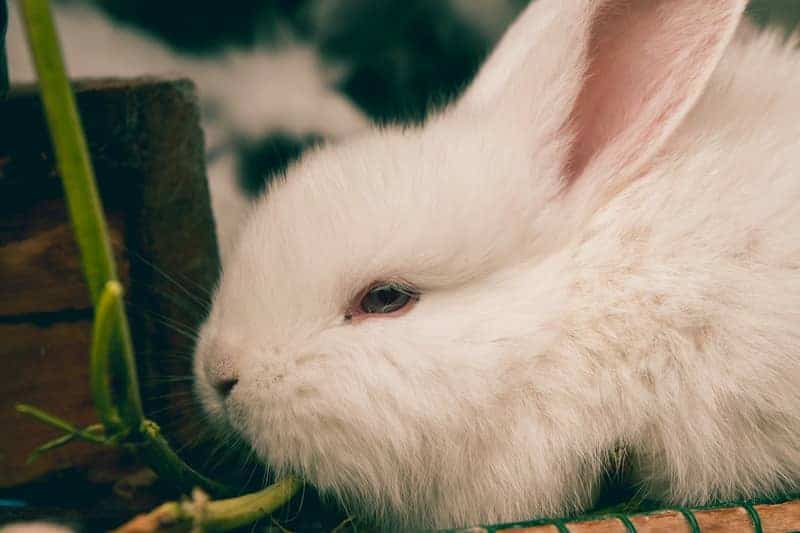
How should you prepare kale for rabbits?
If you decide to feed your rabbit kale, it is important to prepare it properly. Kale should always be washed thoroughly to remove pesticides and chemicals that could be harmful to your rabbit.
The vegetables should be fresh and show no signs of mold or rot. It is best to cut the kale into small pieces to minimize the risk of choking and to facilitate digestion.
Kale from organic cultivation versus conventional cultivation
You may be wondering if it makes a difference if the kale is organically grown or conventionally grown. Organically grown kale is grown without synthetic pesticides or chemicals, which means it is less likely to contain harmful residues that could harm your rabbit.
Conventionally grown kale may contain pesticide residues, so it is especially important to wash it thoroughly. If possible, it would certainly be a better choice to use organically grown kale to minimize potential risks to your rabbit.
Frequently asked questions about feeding kale
Some of the most common questions rabbit owners might ask:
- How often should I feed my rabbit kale?
It is advisable not to feed kale every day. Two to three times a week in small quantities, mixed with other vegetables, should be sufficient. - Can kale cause my rabbits to have water in their stomachs?
Kale has a high water content, but it is not usually considered a cause of water in the abdomen in rabbits. It is always important to monitor your rabbit and see a veterinarian immediately if there are any signs of discomfort. - Should I mix kale with other vegetables?
Yes, it's always a good idea to mix kale with other vegetables to ensure a balanced diet and minimize the risk of digestive problems.
Alternative vegetables to kale for rabbits
While kale offers many benefits for rabbits, there are other vegetables that are safe and nutritious for them. Some alternatives to kale could be arugula, basil, parsley, fennel or Swiss chard. Each of these vegetables have their own nutrient profiles and can provide a good variety in your rabbit's diet.
It is always important to introduce new foods slowly and make sure they are fed in appropriate amounts. A varied diet is the key to your rabbit's health.
Conclusion: Are rabbits allowed to eat kale?
Feeding rabbits can sometimes be a challenge, as you want to make sure they are getting the right nutrients while avoiding any potential risks. Kale can be a nutritious addition to your rabbit's diet, but as with all foods, it is important to feed it in moderation and make sure it is prepared properly.
By using the information provided here and always looking out for your rabbit's well-being, you can ensure that they stay healthy and comfortable.
Author

-
Garden animal - A life with nature
Welcome to my animal blog! My name is Dirk and I am happy to take you on my journey through the fascinating world of animals and gardening.
Born 54 years ago, I have had an insatiable curiosity for the animal world around me since childhood. Although I have moved professionally in other industries, my true passion has always been animals and nature. It is remarkable how a small garden has become such an important part of my life.
Many of my fondest memories are associated with the animals that share our home. Whether it's the curious squirrels that scurry across the trees in the morning, the colorful variety of birds that visit our feeders, or the busy bees and butterflies that pollinate our flowers, every moment with them is invaluable to me.
This blog is my contribution to share my experiences, discoveries and insights with like-minded people. Here I will share stories of unforgettable encounters with animals, give tips on gardening and creating wildlife-friendly habitats, and take you on my journeys through nature.
Thank you so much for being here!
Cordial,
Dirk aka garden animal
Last posts
- 27. February 2024PetsVeganes Hundefutter – Grün und Gesund?
- 18. January 2024ChickensOregano für Hühner
- November 27, 2023HamsterDiurnal hamsters
- November 24, 2023HamsterHamster hammock

